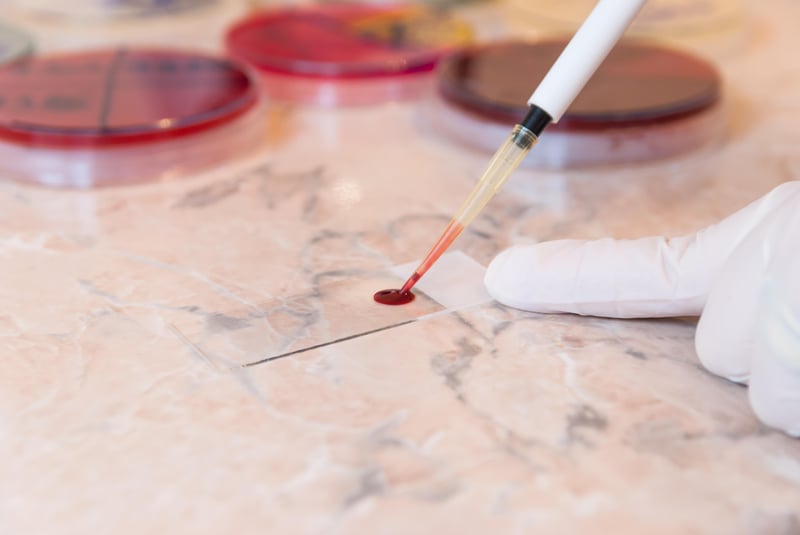Get Healthy!

- Ernie Mundell
- Posted September 29, 2023
FDA Will Begin to Regulate Thousands of Lab Tests
Faced with growing reports of inaccurate clinical lab tests, the U.S. Food and Drug Administration on Friday announced that it will for the first time regulate these vital diagnostic tools.
Many Americans might have assumed that the FDA already had oversight of all medical tests; it does not.
However, FDA Commissioner Dr. Robert Califf said the time is now to monitor the quality of high-tech tests for cancer, heart disease and a myriad other illnesses.
"A growing number of clinical diagnostic tests are being offered as laboratory developed tests without assurance that they work. The stakes are getting higher as these tests are increasingly being used to drive treatment decisions," Califf explained in an FDA news release.
"According to the Centers for Disease Control and Prevention, 70% of today's medical decisions depend on laboratory test results," he noted. "Given the role these tests play in modern medical care, their accuracy and validity have a significant impact on public health."
A handful of corporations, including Abbott Laboratories and Quest Diagnostics, develop and sell many lab tests and now dominate the marketplace.
Some more common tests -- such as those used in hospitals, pharmacies or doctors' offices to spot strep throat, COVID-19 and other conditions -- are already subject to pre-marketing FDA review.
But thousands of so-called "laboratory developed tests" (LDTs), analyzed at many high-tech labs, face no FDA oversight. These tests are often highly sophisticated and are used to identify cancers, sexually transmitted infections, and a host of other conditions.
The science around these tests has evolved significantly since many first came into use decades ago.
"In the 1970s and 1980s, many LDTs were lower risk, small volume and used for specialized needs of a local patient population," the FDA explained. "Since then, due to changes in business practices and increasing ability to ship patient specimens across the country quickly, many LDTs are now used more widely, for a larger and more diverse population, with large laboratories accepting specimens from across the country. LDTs are also increasingly relying on high-tech instrumentation and software, being performed in large volumes and being used more frequently to help guide critical health care decisions."
Beyond that, some companies are now pitching their tests directly to consumers, the FDA noted. At the same time, reports of problematic tests have increased.
"The agency has become increasingly concerned that some LDTs may not provide accurate test results or perform as well as FDA-authorized tests," the agency said.
Inaccurate test results can lead to devastating consequences for patients.
"The FDA is concerned patients could initiate unnecessary treatment, or delay or forgo proper treatment altogether, based on inaccurate test results, which could result in harm, including worsening illness or death," the agency warned.
The FDA pointed to case reports of people either being over- or under-treated for heart disease based on faulty test results or cancer patients undergoing unnecessary or useless therapies.
In other cases, children and adults have been erroneously diagnosed with major conditions such as autism, Alzheimer's disease or certain rare diseases.
Pregnancy tests purporting to spot anomalies like Down syndrome, gene defects and cystic fibrosis have also come under scrutiny.
According to the Associated Press, the new rules are very long in the making: The FDA first proposed these changes over a decade ago.
One shocking example that perhaps helped push the issue forward: Revelations that diagnostic blood tests made by Silicon Valley startup Theranos simply did not work. Company founder and CEO Elizabeth Holmes was later found guilty of misleading investors in the fraudulent scheme and sentenced to prison.
The FDA says the new oversight will be phased in gradually over the next few years, to avoid "undue disruption to the testing market."
The agency claims that the new regulations will be a net cost benefit, due to "a reduction in health care costs associated with unsafe or ineffective tests, including tests promoted with false or misleading claims and from therapeutic decisions based on the results of those tests."
According to the AP, industry representatives have lobbied against FDA regulation of LDTs, claiming it would stifle innovation in the field.
The FDA is taking comments on the new proposals over the next 60 days.
More information
Find out about a range of diagnostic tests at Harvard Health.
SOURCES: U.S. Food and Drug Administration, news release, Sept. 29, 2023; Associated Press







